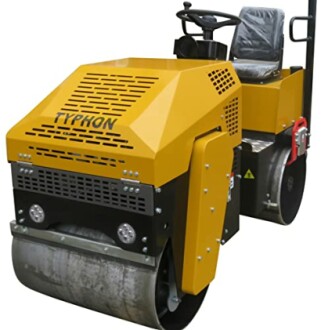
Choosing the Right Asphalt Paver for Your Needs
Key Takeaways
- Assess your project requirements, including the size and type of surface.
- Consider the various features of asphalt pavers, such as engine power, width, and material compatibility.
- Compare different models based on performance, maintenance, and user-friendliness.
- Choose a reputable brand that offers good after-sales support.
- Evaluate attachments and available accessories to enhance functionality.
When it comes to asphalt paving, selecting the right asphalt paver is crucial for the success of your project. There are many factors to consider depending on your specific needs—whether it’s for a large construction site or a small driveway repair. This guide will help you navigate the decision-making process by highlighting essential features and comparing popular models.
Factors to Consider When Choosing an Asphalt Paver
1. Project Requirements
Before making your purchase, evaluate the type of project you're undertaking:
- Residential or commercial applications
- Scale of the project (small, medium, large)
- Type of asphalt mix to be used
- Required thickness of the asphalt layer
- Site conditions including terrain and space constraints
2. Engine Power and Performance
The engine power significantly influences the efficiency of an asphalt paver. Consider:
- Horsepower rating
- Hydraulic efficiency
- Fuel type and consumption
3. Build and Design
Different models come in various sizes and designs. Assess:
- Working width of the paver
- Weight and stability on uneven surfaces
- Material quality
4. Maintenance and Ease of Use
Choose a machine that is easy to operate and maintain. Consider:
- Quick access to parts that need regular checking
- User-friendly controls
- Availability of service and parts
Comparison of Popular Asphalt Paver Models
| Model | Engine Power (HP) | Max Working Width | Type | Weight (lbs) |
|---|---|---|---|---|
| TYPHON Fury 1 Ton Vibratory Compactor | 13.5 | 24 inches | Vibratory Compactor | 2200 |
| Asphalt Paver XYZ | 25 | 12 ft | Tracked Paver | 15000 |
| Asphalt Paver ABC | 40 | 14 ft | Twin Drum Paver | 20000 |
Product Highlights
TYPHON Fury 1 Ton Vibratory Compactor
An incredibly versatile asphalt compactor equipped with a powerful engine, ideal for various uses including garden and road construction.
More DetailsAttachments and Accessories
Asphalt pavers can be enhanced by various attachments. Consider the following:
- Material feeders for continuous flow of asphalt
- Paver control systems for improved accuracy
- Compaction wheels and edge trimmers for finishing
Maintenance Tips for Asphalt Pavers
Proper maintenance ensures longevity and efficiency. Here are some tips:
- Regularly check and change the oil
- Inspect hoses and hydraulic components for leaks
- Keep the paver clean to prevent asphalt buildup
- Follow manufacturer guidelines for servicing
Final Thoughts
Choosing the right asphalt paver involves understanding your project requirements and investigating various models based on performance, maintenance, and usability. Don’t forget to evaluate any additional attachments that can enhance your work. Before making a decision, make sure to read further guides on asphalt pavers and rollers and sealants and crack fillers to gain more insights into your options.
Related Resources
- Buying Guides for asphalt paving equipment.
- Asphalt Paving Techniques to enhance your skills.
- Industry News and Updates on asphalt paving technologies.
- Instructional Guides and Resources for better project planning.
- News and Trends related to the asphalt industry.
Pros
- Versatile for many types of projects.
- Efficient compaction leading to a smoother finish.
- User-friendly operation with electric starting options.
Cons
- Can be heavy and cumbersome for smaller projects.
- Requires regular maintenance to ensure optimal performance.


